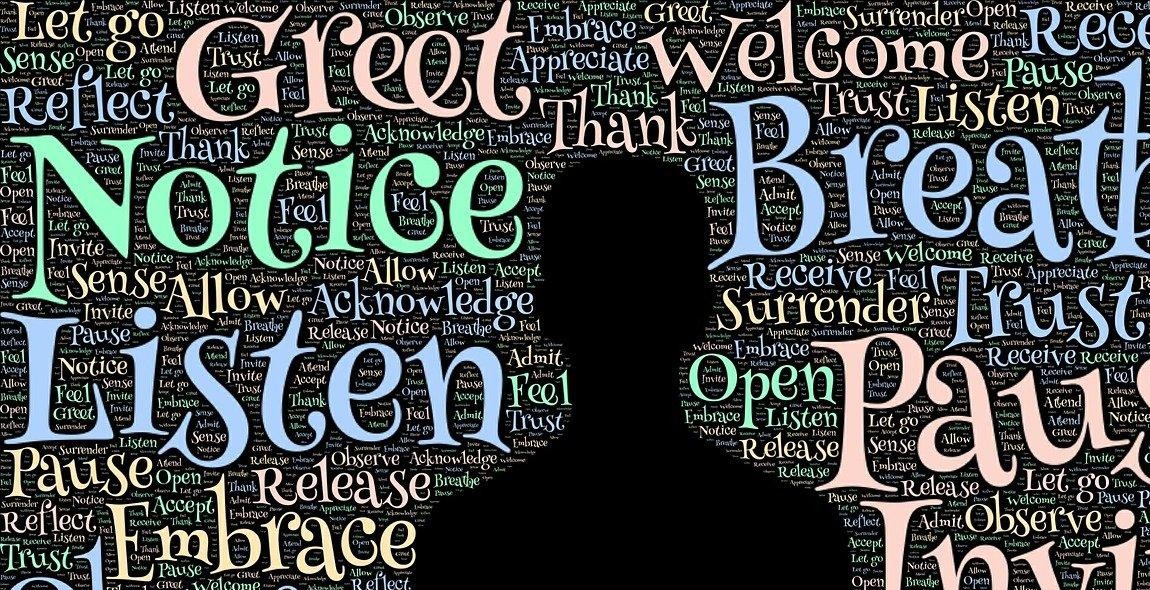How to Open Up About Mental Health: Conversations that Matter
As a professional article writer and content creator, I have had the privilege of delving into various topics, but one that holds a special place in my heart is mental health. Having experienced my own struggles with mental health, I understand the importance of opening up and having meaningful conversations about this often stigmatized topic.
Why is it so difficult to talk about mental health?
For many years, mental health has been shrouded in secrecy and shame. Society has often perpetuated the notion that discussing mental health is a sign of weakness or instability. This stigma has prevented countless individuals from seeking help or sharing their experiences.
The power of conversation
Fortunately, times are changing. People are recognizing the significance of mental health and the importance of creating safe spaces for open dialogue. Conversations about mental health have the power to break down barriers, diminish stigma, and create a supportive network for those in need.
How to open up about mental health
If you’re struggling with your mental health or want to support someone who is, it’s crucial to know how to initiate conversations that matter. In this article, I will share valuable insights, personal experiences, and practical tips on how to approach these conversations with empathy, understanding, and compassion.
Join me as we explore the transformative power of opening up about mental health and learn how to create meaningful conversations that can make a real difference in someone’s life.
Why Opening Up About Mental Health is Important
As someone who has personally struggled with mental health issues, I cannot stress enough the importance of opening up and having conversations about this topic. For many years, I kept my struggles hidden, fearing judgment and stigma. However, I soon realized that keeping silent only perpetuated the problem.
When we share our experiences and emotions with others, we create a supportive and understanding environment. Opening up about mental health not only helps us feel less alone, but it also encourages others to do the same. It breaks down the barriers that prevent people from seeking help and treatment.
Furthermore, discussing mental health openly helps to educate and raise awareness. It challenges the misconceptions and stereotypes surrounding mental illness, fostering empathy and compassion. By sharing our stories, we can inspire hope and let others know that recovery is possible.
Ultimately, opening up about mental health leads to improved well-being, both individually and collectively. It strengthens relationships, builds resilience, and creates a sense of community. So, let’s break the silence and start having conversations that truly matter.
My Personal Journey with Mental Health
As someone who has struggled with mental health for many years, opening up about my experiences has been a crucial part of my healing journey. I vividly remember the fear and shame that consumed me when I first began to acknowledge my struggles. I was afraid of being judged or dismissed, worried that my loved ones wouldn’t understand what I was going through.
However, it was only when I mustered up the courage to have honest conversations about my mental health that I started to see positive changes. Sharing my story with trusted friends and family members allowed me to receive the support and understanding I desperately needed. Their empathy and encouragement gave me the strength to seek professional help and embark on a path of recovery.
Over time, I also realized that opening up about my mental health not only helped me, but it also had a profound impact on those around me. By sharing my struggles, I gave others permission to do the same, fostering an environment of empathy and support.
Today, I am grateful for every conversation I have had about mental health. Whether it’s discussing my experiences, offering support to others, or advocating for greater awareness, these conversations have been transformative. They have taught me the power of vulnerability, the importance of seeking help, and the beauty of human connection.
Breaking the Stigma: Starting the Conversation
Opening up about mental health can be challenging due to the stigma surrounding it. However, creating a safe and supportive environment is crucial in order to encourage meaningful conversations. Drawing from my personal experience, I have found that choosing the right time and place is essential.
Choosing the Right Time and Place:
It is important to select a comfortable and private setting where both parties can feel at ease. Avoiding distractions such as phones or other interruptions can help maintain focus and create a safe space for open dialogue.
Active Listening and Empathy:
When someone opens up about their mental health, active listening and empathy play a vital role in fostering understanding and support. Giving undivided attention, maintaining eye contact, and asking clarifying questions demonstrate a genuine interest in their experiences.
Creating a safe and supportive environment, choosing the right time and place, and practicing active listening and empathy are essential steps in breaking the stigma surrounding mental health. By starting the conversation, we can contribute to a more compassionate and understanding society.

Navigating Difficult Emotions and Reactions
When it comes to discussing mental health, it is important to be prepared for a range of emotions and reactions from others. Here are some strategies for navigating difficult responses:
Dealing with Denial and Disbelief
It can be disheartening when someone denies or disbelieves your mental health struggles. Remember that their reaction is not a reflection of your worth or the validity of your experiences. Stay calm and assertive, providing them with information and resources to help them understand. Sharing personal stories or experiences can also be effective in breaking through denial or disbelief.
Addressing Fear and Misunderstanding
Fear and misunderstanding often stem from a lack of knowledge about mental health. Be patient and empathetic, answering questions and addressing concerns. Provide educational materials or recommend reputable sources to help dispel myths and misconceptions. Sharing your own journey and the steps you have taken to manage your mental health can help alleviate fears and foster understanding.
Offering Validation and Support
Validation and support are crucial when discussing mental health. Listen actively and empathetically, acknowledging the person’s emotions and experiences. Avoid judgment or dismissive comments. Offer reassurance that seeking help is a strength, not a weakness. Encourage them to reach out to mental health professionals or support groups and remind them that they are not alone in their struggles.
Sharing Personal Experiences
Opening up about mental health can be a daunting task, but it is crucial for creating conversations that matter. As someone who has personally struggled with mental health issues, I understand the importance of sharing my experiences.
When I first decided to talk openly about my mental health, I was met with mixed reactions. Some people were understanding and supportive, while others were dismissive or judgmental. However, the positive responses I received far outweighed the negative ones, and I found solace in knowing that my words resonated with others.
Sharing personal experiences can help break down the stigma surrounding mental health. It allows others to see that they are not alone in their struggles and that seeking help is not a sign of weakness. By sharing our stories, we can inspire and empower others to open up about their own experiences.
It is important to approach these conversations with empathy and understanding. Listening actively and offering support can make a world of difference to someone who is struggling. Remember, everyone’s journey is unique, and it is essential to respect their boundaries and privacy.
Whether it’s through writing, speaking at events, or participating in support groups, sharing personal experiences can be a powerful tool for raising awareness and promoting mental health advocacy.
Remember, you are not alone, and your story matters.

Finding Professional Help and Resources
Opening up about mental health can be a challenging journey, but there are numerous professional help and resources available to support you along the way. Here are some key avenues to consider:
Encouraging Therapy and Counseling
Therapy and counseling can provide a safe space to explore your thoughts, feelings, and experiences with a trained professional. Whether you prefer individual sessions or group therapy, these services can offer invaluable guidance and support. Look for licensed therapists or counselors who specialize in mental health and have experience dealing with the specific challenges you are facing.
Highlighting Support Groups and Online Communities
Support groups and online communities can connect you with others who have similar experiences. Sharing your story and listening to others can provide a sense of belonging and understanding. Look for local support groups or online communities that focus on mental health issues you are dealing with. These platforms can offer a wealth of knowledge, empathy, and practical advice.
Promoting Self-Care and Wellness
Self-care and wellness practices are essential for maintaining mental well-being. Engaging in activities that bring you joy, such as exercise, meditation, or creative pursuits, can help reduce stress and improve overall mental health. Consider exploring resources such as self-help books, apps, or online courses that provide guidance on self-care practices tailored to your needs.

The Power of Language and Mindful Communication
As someone who has personally experienced the challenges of opening up about mental health, I understand the profound impact that language and communication can have on these conversations. Using non-judgmental and compassionate language is crucial in creating a safe and supportive environment for individuals to share their struggles.
Avoiding stigmatizing labels and stereotypes is equally important. These harmful words can perpetuate negative stereotypes and contribute to the stigma surrounding mental health. Instead, we should focus on promoting understanding and empathy, encouraging others to see beyond the labels and truly connect with the person behind the diagnosis.
Positive and encouraging dialogue plays a significant role in fostering a sense of belonging and empowerment. By using uplifting language and offering support, we can inspire individuals to seek help and share their experiences openly. It is through these conversations that we can break down barriers, reduce stigma, and create a more compassionate society.
Supporting Loved Ones: What to Say and Do
When it comes to opening up about mental health, expressing understanding and empathy is crucial. Let your loved ones know that you are there for them and that you care about their well-being. Avoid judgment or dismissive remarks, and instead, listen attentively and validate their feelings.
Offering practical help can make a significant difference in their journey. You can assist with daily tasks, such as cooking a meal, running errands, or taking care of their responsibilities temporarily. Small gestures like these can alleviate some of the stress they may be experiencing.
While your support is essential, encouraging professional assistance is equally important. Suggest seeking help from a mental health professional, such as a therapist or counselor. Offer to help them research and find suitable resources or accompany them to appointments if they feel comfortable.
Remember, everyone’s experience with mental health is unique, so it’s vital to approach each situation with sensitivity and respect. Together, we can create an environment that promotes open conversations and supports those who need it most.
Taking Care of Your Own Mental Health
As someone who has personally struggled with mental health, I understand the importance of self-care and seeking help when needed. Here are some strategies that have helped me on my journey:
1. Prioritize self-care
Make time for activities that bring you joy and relaxation. Whether it’s practicing mindfulness, engaging in creative hobbies, or spending time in nature, find what helps you unwind and recharge.
2. Maintain a healthy lifestyle
Physical health and mental health are closely linked. Make sure to eat a balanced diet, exercise regularly, and get enough sleep. Taking care of your body can positively impact your mood and overall well-being.
3. Connect with others
Building a support system is crucial. Surround yourself with people who uplift and understand you. Open up to trusted friends and family about your struggles. Consider joining support groups or seeking professional therapy if needed.
4. Practice self-compassion
Be kind to yourself and acknowledge that it’s okay to have bad days. Treat yourself with the same compassion you would offer to a loved one. Practice positive self-talk and challenge negative thoughts.
5. Set boundaries and manage stress
Learn to say no and prioritize your own needs. Avoid overcommitting and take time to relax and recharge. Explore stress-management techniques such as deep breathing exercises, meditation, or journaling.
Remember, taking care of your mental health is an ongoing journey. It’s important to seek professional help if you’re struggling and remember that you’re not alone. Together, we can break the stigma surrounding mental health and create a supportive environment for everyone.
Conclusion
Opening up about mental health is not always easy, but it is a crucial step towards healing and finding support. Through my personal experience, I have learned that having conversations about mental health can be transformative and life-changing.
First and foremost, it is important to create a safe and non-judgmental space for these conversations to take place. Listening without interruption, offering empathy, and validating the other person’s feelings can go a long way in making them feel heard and understood.
Additionally, educating ourselves about mental health and the various conditions that exist can help us approach these conversations with compassion and knowledge. By understanding the symptoms, treatments, and available resources, we can provide better support to those who are struggling.
It is also essential to be mindful of our language and the power of our words. Using inclusive and non-stigmatizing language can help reduce the shame and isolation that often surrounds mental health issues. Choosing words that are empowering and supportive can make a significant difference in someone’s journey towards healing.
Finally, it is crucial to remember that opening up about mental health is a personal decision. Not everyone may be ready or willing to have these conversations, and that’s okay. Respect their boundaries and continue to be a source of support and understanding.
By embracing these strategies, we can foster an environment where conversations about mental health are normalized and encouraged. Together, we can break down the barriers of stigma and create a world where everyone feels comfortable seeking help and support when they need it most.
